
AmSpa Events
Move Beyond Excuses: People Management with Cy Wakeman
How do you get your team to come to work joyfully? Are you setting boundaries and expectations for performance in ...
Posted By Mike Meyer, Friday, August 16, 2019
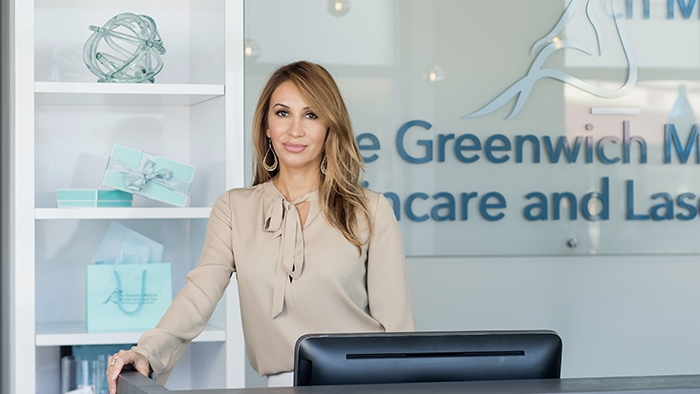
After having her second child, Marria Pooya contemplated becoming a full-time mom, but the former Wall Street financial analyst couldn't resist the call of entrepreneurship and set out in search of new opportunities. In 2005, she founded Greenwich Medical Spa in Riverside, Connecticut; today, the practice has three locations and is thriving, thanks in large part to Pooya's drive to succeed. Pooya recently spoke with AmSpa Content Writer/Editor Michael Meyer about her journey through the world of medical aesthetics.
Michael Meyer: What inspired you to open your practice?
Marria Pooya: My background is Wall Street. I was a financial analyst covering the high-yield sector companies like consumer products and retail chains. I did that for about three years, and then I worked for a consumer products company where I helped develop two color cosmetic lines that were sold in mass retail stores like CVS and Rite Aid. When we had our second child, I actually wanted to be a stay-at-home mom. It didn't really last long.
Six months later, I got the itch to open another business. I actually wanted to open a candy store—something like Dylan's—and my husband said, "Why don't you just go online and see if there are any franchises out there?" And when I did, that's when I learned about the med spa business, because there are a couple of franchises out there, and I knew that that's what I wanted to do. I love the beauty business, so I felt like that was my calling.
The next thing we know, we're on a plane to Arizona to buy a med spa franchise. They had the sexy story—baby boomers getting older, they have disposable income, they want to look younger and they don't want to have surgery. So, $80,000 later, we come back and we have a franchise, but we found that that the franchise was actually a sham. They had the sexy story but not the experience to carry out the vision. So we sued the franchisor, got out of our franchise agreement and then changed our name to Greenwich Medical Spa.
MM: What's different about your practice now versus when you opened?
MP: Well, when we first opened we were only four people, and now we're, like, 25. That's the main difference. But also, when we first opened, it was very different. You didn't have a lot of the non-surgical technologies that we have today, in terms of what we could provide to our patients at that time. You had Botox, fillers, laser hair removal and an IPL machine, and that's it. That was the technology 14 years ago.
Now there are so many different modalities for non-surgical treatments, from skin tightening to non-surgical fat reduction, like CoolSculpting, to now threads for lifting the skin. This industry has really dramatically increased, maybe twofold or now threefold, so there are more options for the patients. That's the main difference.
Also, people are more accepting of injectables, like Botox. Fourteen years ago, nobody talked about Botox, and when somebody had it done, they didn't tell their friends. Nowadays, it's a lot more common and acceptable.
MM: What's one word you would use to describe your med spa journey?
MP: Probably "growth." Coming from Wall Street, I didn't have the experience to manage a staff. I think that for myself, a lot of growth has happened in the past 14 years. I've become a better manager. When I was working on Wall Street, the philosophy was that you pay people well and you expect them to do the job, and that's it. That's all it was. It wasn't about encouraging the staff members, saying a "thank you" or "please," or helping them develop. Over time, I'e become a better listener, a better manager, and I've learned a lot.
MM: What is your most popular treatment?
MP: Hands down the injectables. Botox is a big part of our business. People come in for that, and then we're able to up-sell them to other treatments. It's a treatment that is well-known in the population, because it's advertised a lot and people are talking about it. It's a great treatment. Botox is about 22% of our business, and injectables are 39%.
MM: What's the most important factor in your success?
MP: I think that the most important thing is your employees. It's really important that we have the best customer service for our patients, and that starts with our employees. It starts from the front staff to the mid-levels who actually are providing the treatments to the back office, who are helping support both the front and the back. The staff can make you or break you. It's how they treat the clients and if they believe in your vision. It's the welcoming tone that they have on the phone. It's the person who's doing the treatment and who actually cares about the patient and listens to them—truly listens to them—and tries to become a partner with them in their journey of rejuvenation. Employees are really, really important, and it's been a huge learning experience for me since opening the business.
In the beginning when I had opened the business, we were going through a lot of turnover where I didn't know how to manage my staff. I wasn't a good manager—I wasn't a good leader. We were just hiring people to fill in positions. Now we're actually going through a process—we're hiring the right fit, people who actually believe in our vision, believe in what they do and love what they do. The fit is really important with us. One of the reasons why we've been successful is we have a team that works really, really well together. They love coming to the business. They look at it as if it's their own business. They feel invested in it, and that translates into happy clients who leave here, leave great reviews and love coming back.
MM: What would you say makes your med spa different than others?
MP: I think that it starts with the customer experience. Let me just take you through the journey. Say that we get a lead that comes in an email. The first thing we do is call the patient up immediately and try to get them to come in for an appointment. Before they even come into an appointment, we send them a video describing what they should expect during their consultation. When they come in, the person gets up, already knows the patient's name, greets them, brings them in and then hands them off to the clinician who does the treatment. When the patient leaves, we send them a handwritten thank-you letter as well as their treatment protocol, and then we call them back after the consultation to see if they have any questions; we also do that for follow-up visits. After every treatment that we do, somebody calls the patient and asks if they had a great experience and if they had any questions. I don't believe anybody else does that. It's that kind of experience that we give to our patients that sets us apart from everybody else.
Besides that, though, we have an amazing reputation in the community because we've worked really, really hard to get some of these accolades. For example, we are the number-one provider of Botox and CoolSculpting in Connecticut, and also in Westchester County, New York, and we're top-100 out of 20,000 locations, and that's because of the volume of these treatments that we offer. We have a reputation in the market that we give great customer service, we give great outcomes for our patients, they're happy with their results and they're willing to come back.
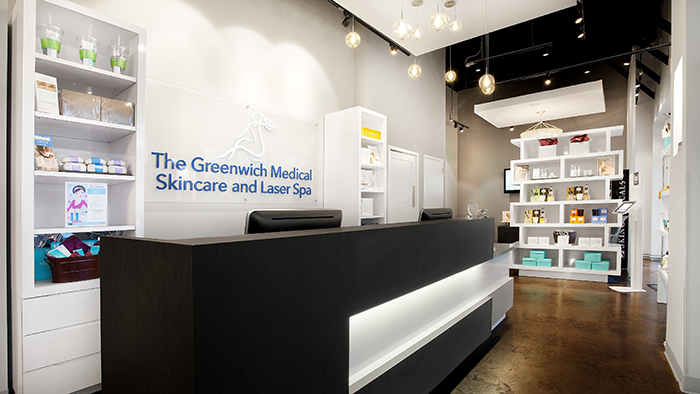
MM: Who inspires you?
MP: My husband. He works behind the scenes and is a huge support system for me. He's always given me great advice. He tells me to calm down when I'm anxious and nervous. He's been a really great motivator. I guess that's another reason that I'm successful. Also, I feel that your employees can make you or break you, so having great employees who are happy also tells me that I'm successful.
MM: What do you love most about aesthetics?
MP: I love the confidence that it gives people. Just a little bit of enhancement—a little bit of Botox in the forehead lines and removing those lines—can make somebody feel so much better about themselves. Just coming in here and talking to somebody, and they tell you, "You know what? You don't need anything," they leave feeling better. That's great. That's what I love. It's the confidence that this business gives to people. I love that. I love making people feel good about who they are every single day.
MM: What do you love about being an entrepreneur?
MP: I love the challenge. My father is an entrepreneur and it's in my blood. I love the fact that it's something that is hard to do. The statistic is, I think, 90% of the businesses fail within three years, so we would sit there and say, "Okay, we need to make the three-year mark." And then once we hit three years, then it was like, if you make it to five years, you have an 80% chance of surviving and doing well. When we hit the five year mark, we're like, "Okay, we're safe." And then 10 years was like, "Okay, now you've made it." What I love about being an entrepreneur is that challenge of every day waking up and trying to find out, can we make this business successful? Can we drive this? Can we get this to the next level? That's what I love about it.
Also, when you're an entrepreneur and you're a decision-maker, you can make changes really, really quickly versus a corporate business. If you, for example, come up with a marketing idea, you could implement that within a day, whereas when you are working for a corporation, it takes months to do that same thing. For example, if you want to introduce a new technology or a new service, when you're an entrepreneur or a startup, you can just go in and take the dive—do your research and do that. However, if you are a chain or if you are in a corporate world, you have to go through these processes and systems to make sure that this is what you need to do. That's why I love it—you can implement something really quickly or take something out of your business really quickly versus being working for a corporation. I love that.
MM: What advice would you give to other med spa owners?
MP: I think that customer service is really important. What will set you apart from your competition? Will it be the customer experience? And that starts with your employees. So, it's really important that you make sure that you have the right fit and invest in your employees—pay for education and training, pay them above-market, and make them feel that they're really part of the business.
Also, when you're starting out, it's really important that you focus on your margins and keep your overhead low. Maybe start out hiring part-time positions. For example, when I started my business, besides my spa coordinator, everybody was part-time—my aestheticians and my mid-levels. This way, I save on paying benefits such as medical insurance, 401k and PTO. Also, when you're scheduling your treatments when you're starting out, work three to four days out of the week instead of five to six days. When I started out, we were open Tuesdays, Thursdays and Saturdays, and then we added Friday and Wednesday as we got busier. When people asked on a day that we didn't have staff, we just said that we're fully booked. Really think about the bottom line and try to focus on your financials, because this industry is such a high overhead business.
AmSpa members receive QP every quarter. Click here to learn how to become a member and make your med spa the next aesthetic success story.
Related Tags
Medical spa news, blogs and updates sent directly to your inbox.

AmSpa Events
How do you get your team to come to work joyfully? Are you setting boundaries and expectations for performance in ...
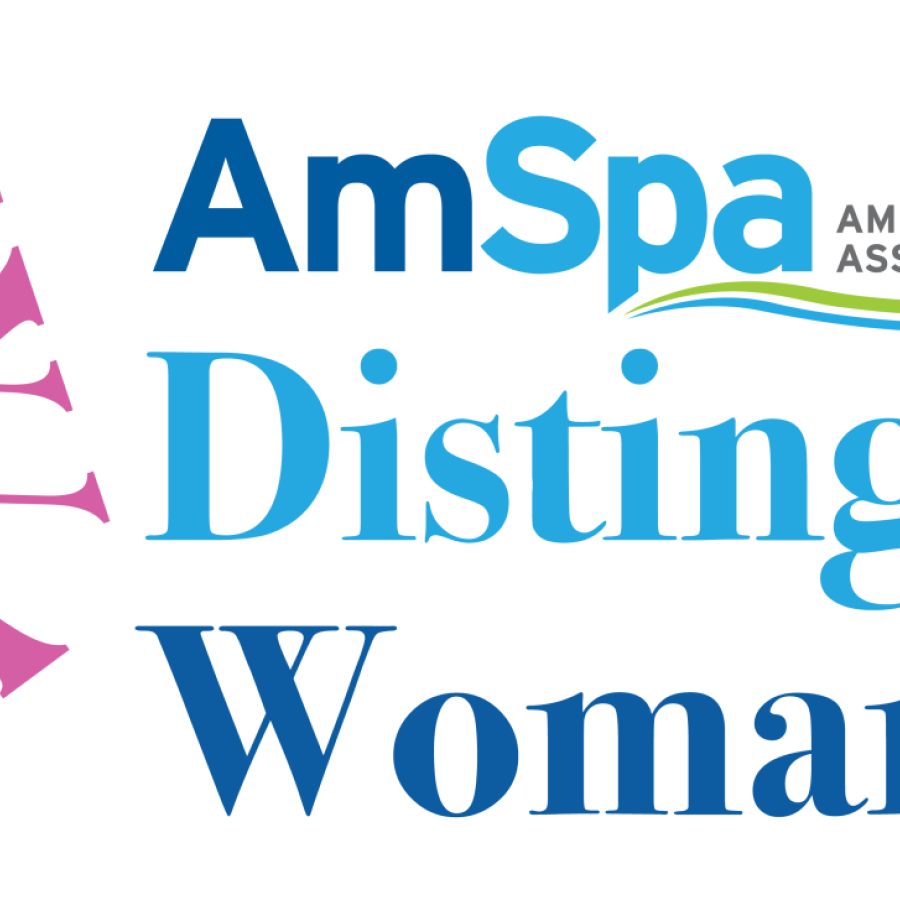
AmSpa Events
The American Med Spa Association (AmSpa) has announced its list of Distinguished Women in Medical Aesthetics 2025, recognizing 25 visionary ...
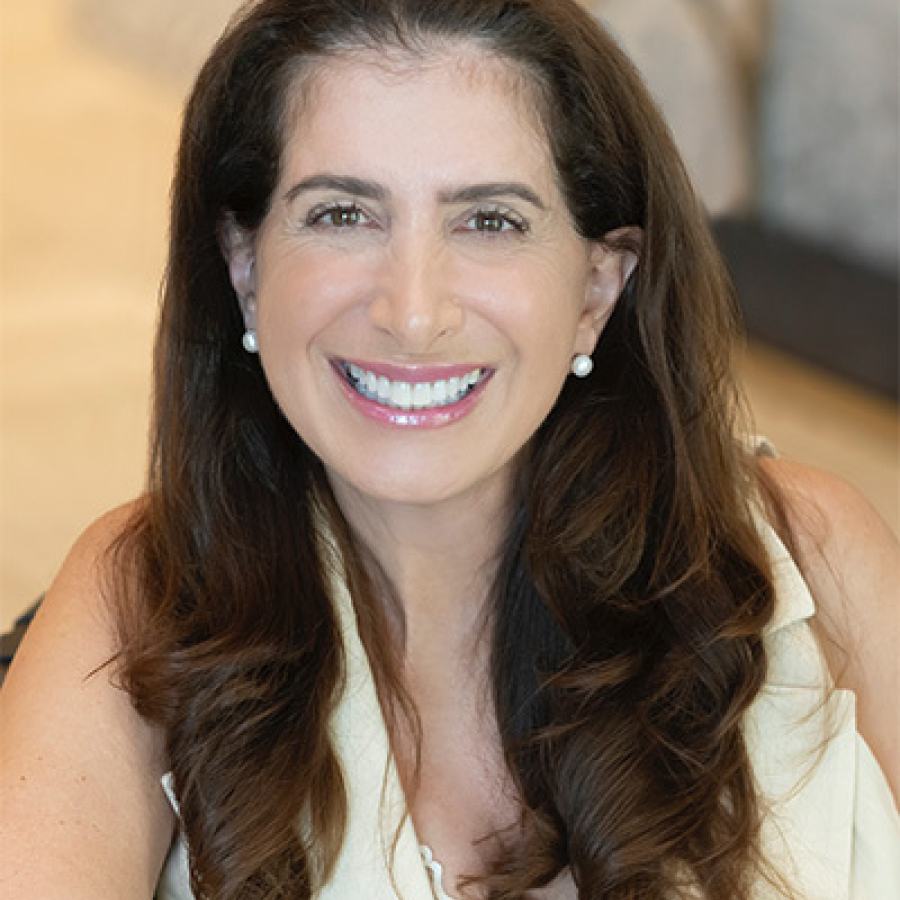
AmSpa Events
How Lisa Lickstein and Her Team at Lickstein Plastic Surgery Are Redefining the Standards of Aesthetic Patient Care Through Unreasonable ...
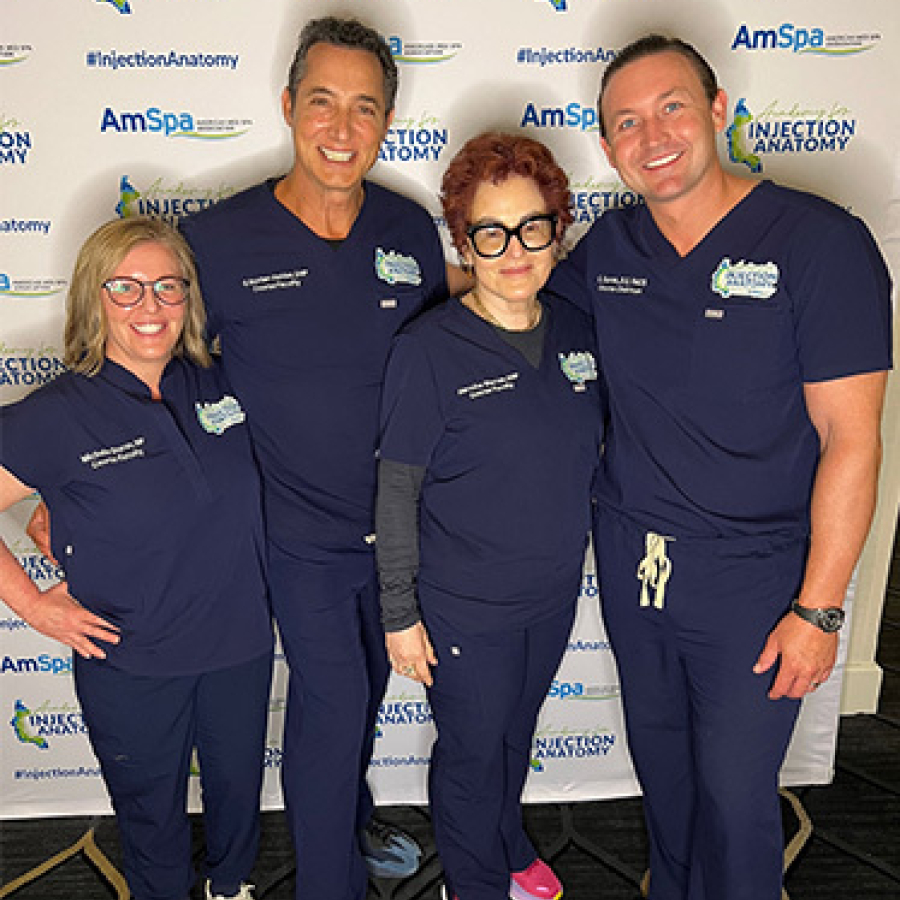
Clinical
By Madilyn Moeller, Marketing Content CoordinatorMichelle Doran, MSN, APRN, BC, CANS, spoke to Alex Thiersch, JD, on AmSpa’s Medical Spa ...